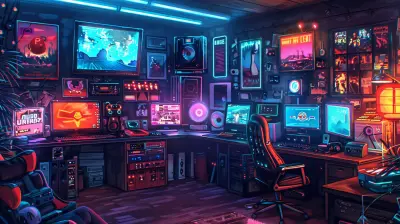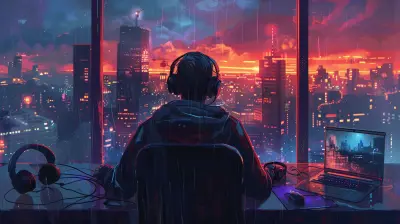The Relationship Between Gaming and Cinematic Storytelling
16 June 2025
Let’s be honest—video games aren’t just about pixel-packed action anymore. We’ve come a long way from the days of Pong and Tetris. Today’s games are immersive experiences where storytelling competes with Hollywood blockbusters. So, it’s only natural to ask: what’s the real connection between gaming and cinematic storytelling?
Glad you asked.
This powerhouse combo of video games and cinematic narratives is changing the way we experience stories. It’s emotional, it’s powerful, it’s artistic—and it’s booming! In this article, we’re diving deep into how the lines between games and cinema have blurred and why that’s a good thing—for both gamers and storytellers.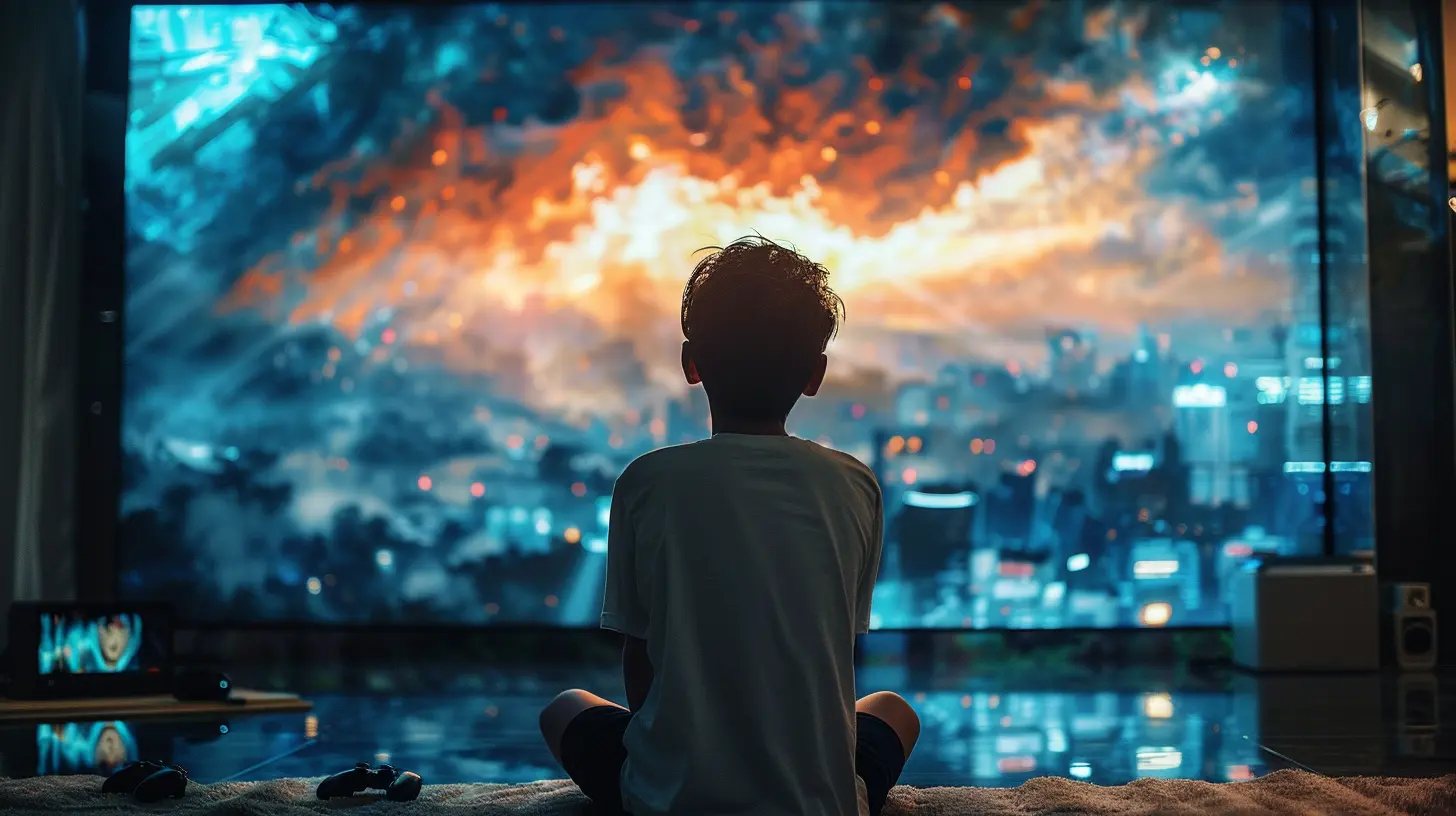
The Evolution: From Pixels to Protagonists
First off, think about how gaming started. Back in the 1980s, games were simple. You’d jump over barrels or blast some aliens. The story? Pretty much non-existent.But today? Games like The Last of Us, Red Dead Redemption 2, and God of War have storylines so rich, they’d give Oscar-nominated films a run for their money. And that didn’t happen overnight.
Developers slowly began to realize that players want more than just high scores—they want meaning, emotion, connection. It wasn’t enough to just “win.” Players wanted to care. And that meant building narratives that could carry those emotions.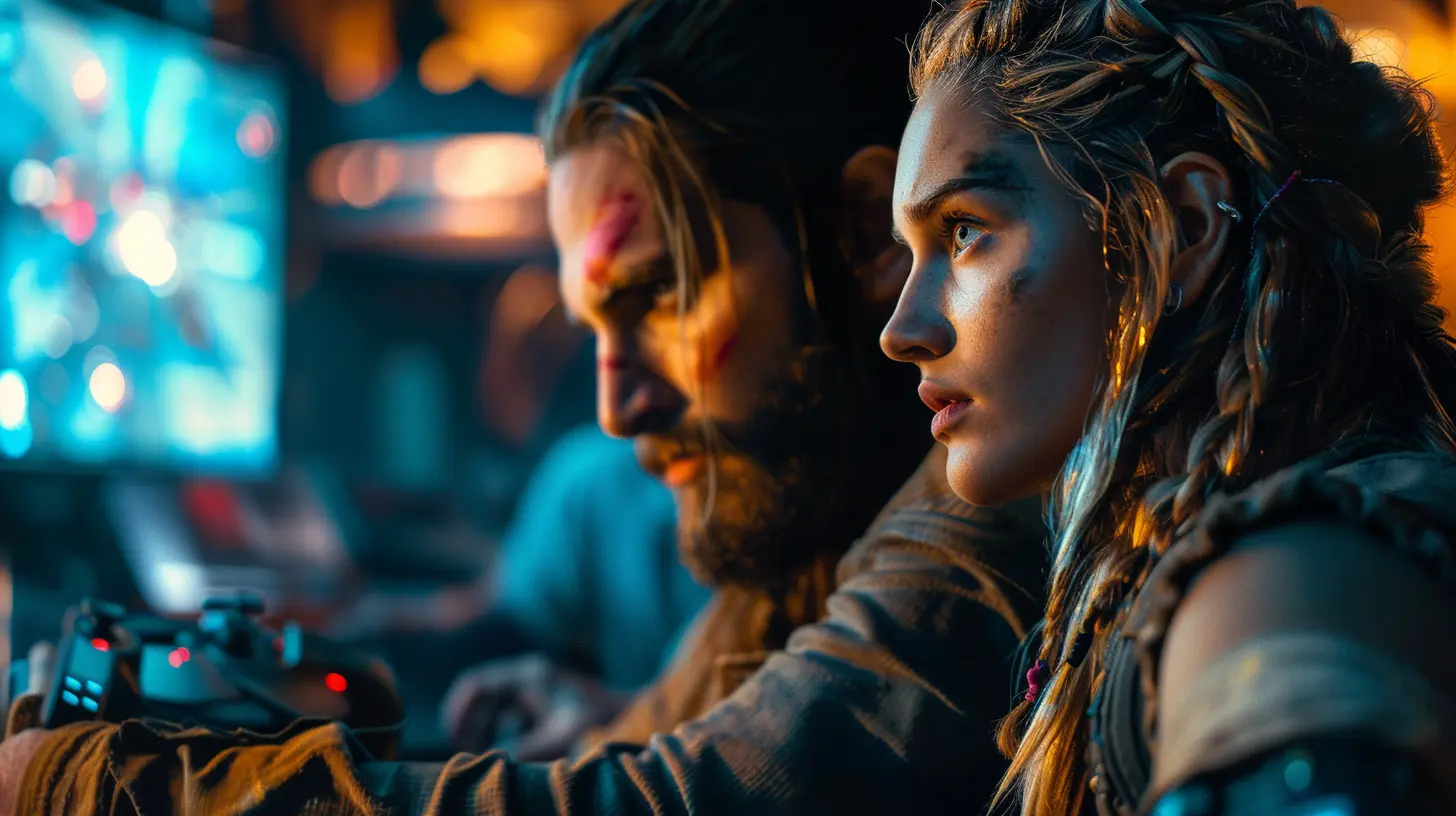
Why Storytelling Moved Into Gaming
Alright, so why did gaming suddenly become a storytelling medium?Simple. Because it works.
Stories are powerful. They help us understand each other. They make us feel. And in a world where people spend hours inside digital realms, weaving captivating narratives into gaming just made sense.
Game developers saw the power of a good story. And when you add interactivity into the mix? Oh boy, you’ve got magic.
You’re not just watching a character struggle—you’re living it. You’re making the decisions. You’re shaping the narrative. That level of emotional investment? That’s cinematic gold.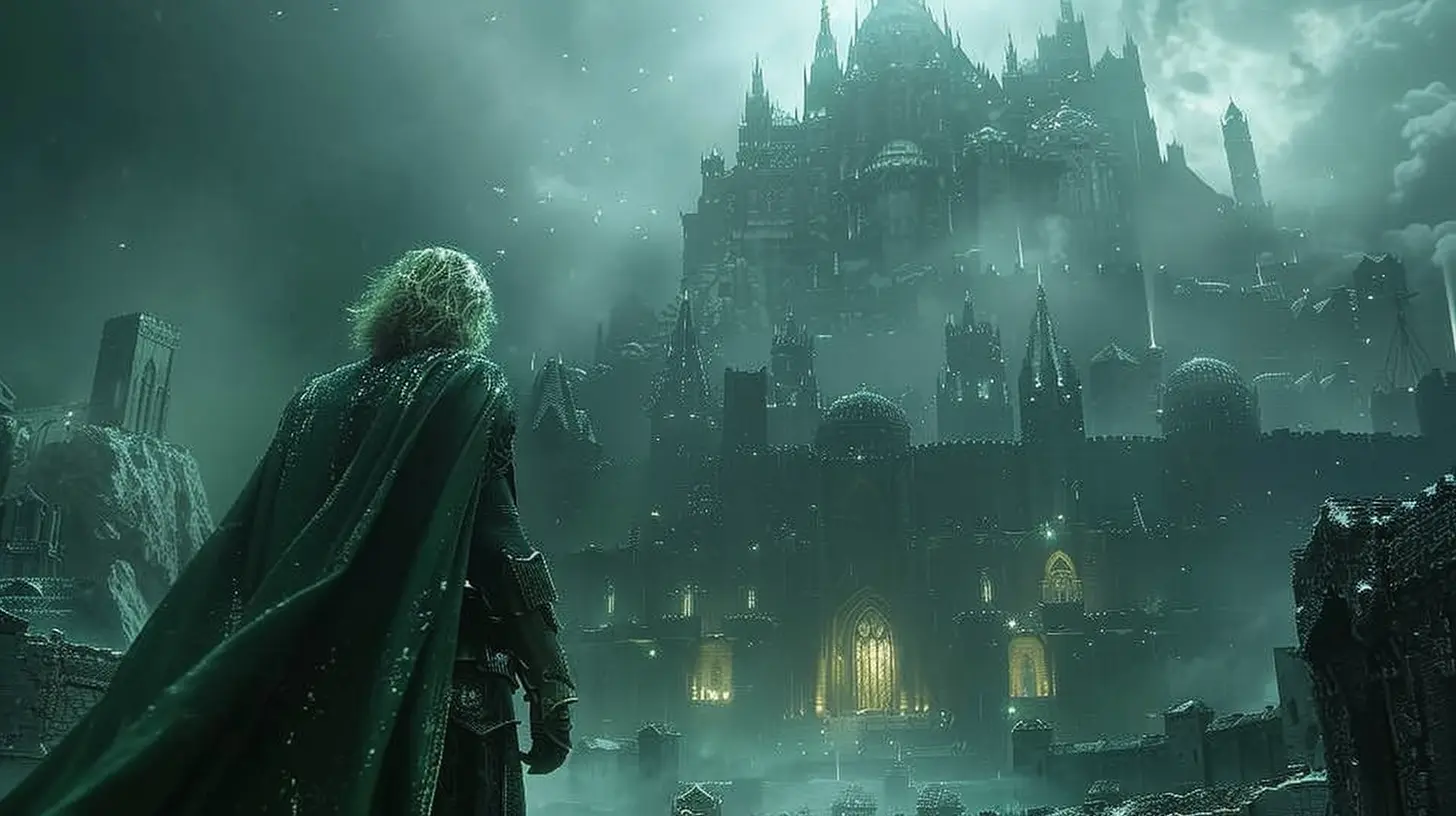
The Mechanics Meet The Movies
Let’s talk tech for a second. The gaming industry has borrowed a lot from movies—camera angles, lighting, motion capture, you name it.Think about Uncharted. The transitions between gameplay and cutscenes are so smooth, it’s like you’re playing inside a movie. You’ve got dialogue that’s well-written, voice actors whose performances are next-level, and visuals that practically scream “award-winning.”
And motion capture? That’s a game-changer (pun intended). It’s what allows characters in games like Detroit: Become Human to feel real. Like, “I-care-about-you” real.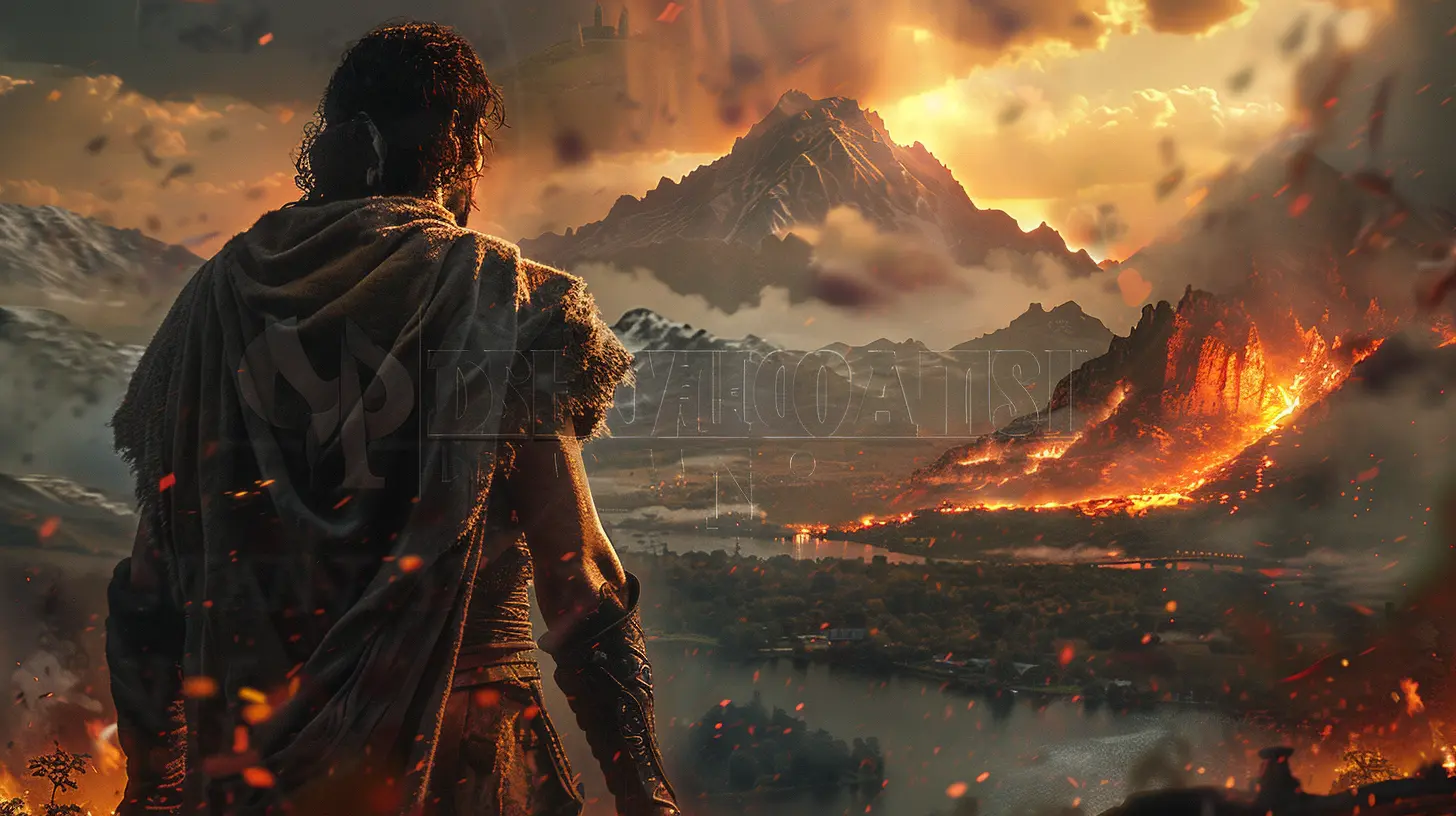
Choice-Based Gameplay: You’re the Director Now
In traditional cinema, the story unfolds in a fixed way. You sit back, grab some popcorn, and watch it all happen.But in gaming? Nope. You’re in control. You’re the hero—or villain—of the story.
Games like Mass Effect, Life is Strange, and The Witcher 3 thrive on decision-making. Every choice you make shifts the narrative. Imagine being both the audience and the director. That’s exactly what interactive storytelling gives you.
It’s not just watching a story. It’s building one. One decision at a time.
Emotional Depth: Gaming’s Hidden Superpower
Let’s get real for a second. Have you ever teared up during a game? Don’t worry, we won’t judge. Most of us have.Games like That Dragon, Cancer or Gris don’t just tell stories—they make you feel them. And that’s where the real power of cinematic storytelling in games shines.
You get emotionally invested, and it sticks with you far longer than any boss battle. These games don’t rely on jump scares or explosive graphics—they rely on heart.
It’s proof that gaming is not just entertainment—it’s emotional art.
Hollywood Takes Notice: From Games to the Big Screen
Here’s the kicker—Hollywood’s paying attention. A lot of films and shows are now being adapted from games. Think The Witcher, Arcane, The Last of Us, even Detective Pikachu!Why? Because the stories are already top-notch. They’ve got complex characters, fascinating worlds, and built-in fanbases. It's like getting a novel and film rolled into one.
And the line keeps getting thinner. Some games even star Hollywood actors—Keanu Reeves in Cyberpunk 2077, Norman Reedus in Death Stranding, just to name drop a few.
It’s a two-way street now. Games influence films, and films influence games. We're watching the dawn of a creative revolution.
The Art of Game Direction: Directors With a Joystick
In Hollywood, directors are the visionaries. But in gaming, we’ve got game directors—people like Hideo Kojima, Cory Barlog, and Neil Druckmann—who are essentially cinematic auteurs.They’re pushing boundaries, crafting stories that stick with you, stories that say something big, something bold. And they’re doing it with gameplay that’s just as compelling.
Take Kojima’s Death Stranding—a narrative so abstract and artistic, it feels more like an indie film than a blockbuster game. But that’s what makes it genius. It dares to be different.
The Future of Storytelling in Gaming
Now, let’s look ahead.With tech like VR and AR stepping into the spotlight, storytelling is about to get even more immersive. Imagine stepping into a game where the story literally unfolds around you. Where every whisper feels real, every decision feels heavier.
AI is also stepping up. Soon, we might have NPCs that react uniquely to each player, crafting personal stories just for you. It’s like a “Choose Your Own Adventure” book on steroids.
The possibilities? Limitless.
Why This Matters to You (Yes, You!)
So what does this mean for players and creators?If you’re a gamer, you’re no longer just someone with a controller—you’re a storyteller. Every choice you make adds depth to the narrative. You’re not just playing; you’re creating.
And if you’re a writer, filmmaker, or artist looking to inspire? Gaming is your blank canvas. A place to try new ideas, to push storytelling in directions Hollywood hasn’t even thought of yet.
It’s a playground. And everyone’s invited.
Games That Nailed Cinematic Storytelling
Let’s show some love to the games that truly raised the bar:- The Last of Us Part I & II – Emotional, devastating, beautifully crafted.
- Red Dead Redemption 2 – A Western tale full of grit, loyalty, and loss.
- God of War (2018) – A reboot that went deep into fatherhood and mythology.
- Bioshock Infinite – Twists that will leave your mind blown.
- Life is Strange – High school drama meets time-travel with heart-wrenching choices.
- Heavy Rain – A murder mystery that had players questioning their own morals.
These aren’t just games. They’re experiences. They rival the best shows on Netflix or the most beloved films on your watchlist.
Final Thoughts: Where Gaming and Film Collide
Gaming and cinematic storytelling aren’t just coming together—they’ve fused. What once seemed like two different worlds now coexist, enriching each other.Think of it like peanut butter and jelly—great on their own, but together? Absolute magic.
So, the next time someone says, “games are just for kids,” shoot them a look and tell them you’ve just had your heart broken by a fictional character in a digital world where you were the main character and director rolled into one.
And that? That’s storytelling at its finest.
all images in this post were generated using AI tools
Category:
Gaming IndustryAuthor:

Whitman Adams
Discussion
rate this article
2 comments
Kova Lopez
Gaming enhances storytelling; immersion surpasses traditional cinema.
June 17, 2025 at 3:52 PM

Whitman Adams
I appreciate your perspective! Gaming's interactive nature indeed allows for deeper immersion and personal connection to narratives, often creating unique storytelling experiences that cinema can't replicate.
Adeline Forbes
Gaming and cinematic storytelling share a unique bond, each enriching the other. When narratives are crafted thoughtfully, they create immersive worlds that resonate deeply with players and viewers alike.
June 17, 2025 at 3:26 AM

Whitman Adams
Absolutely! The synergy between gaming and cinematic storytelling creates a rich, immersive experience that elevates both mediums, captivating audiences in profound ways.
